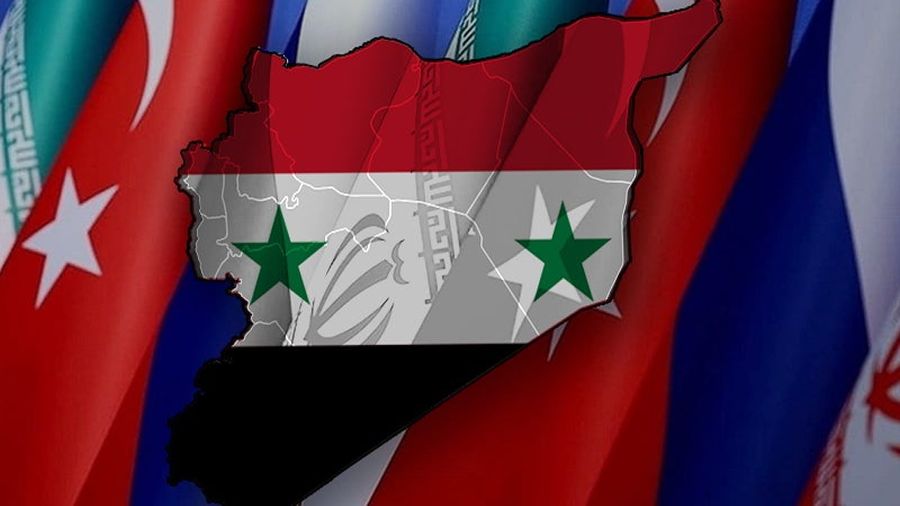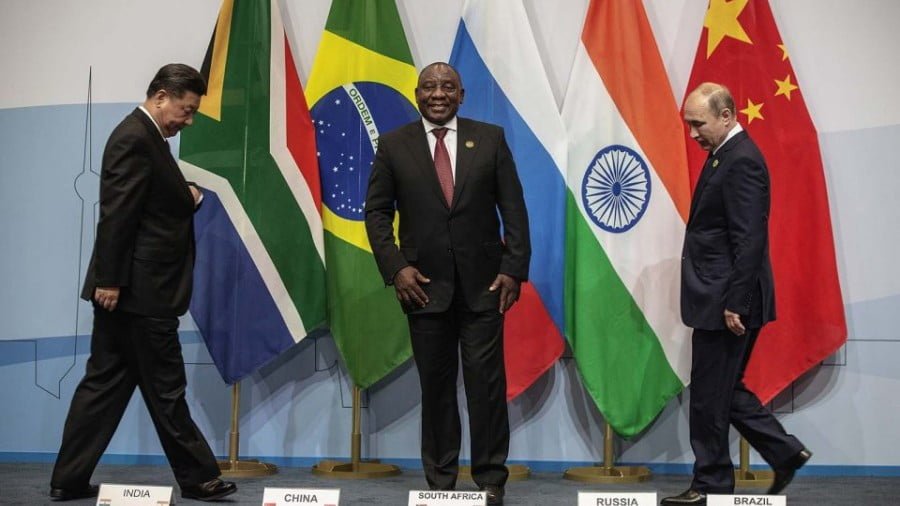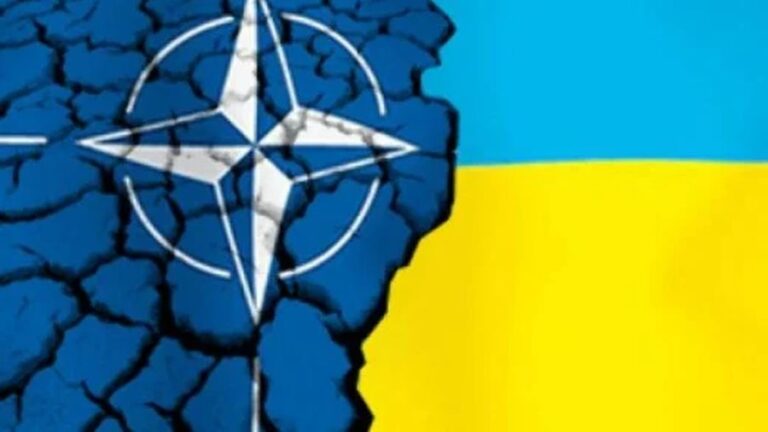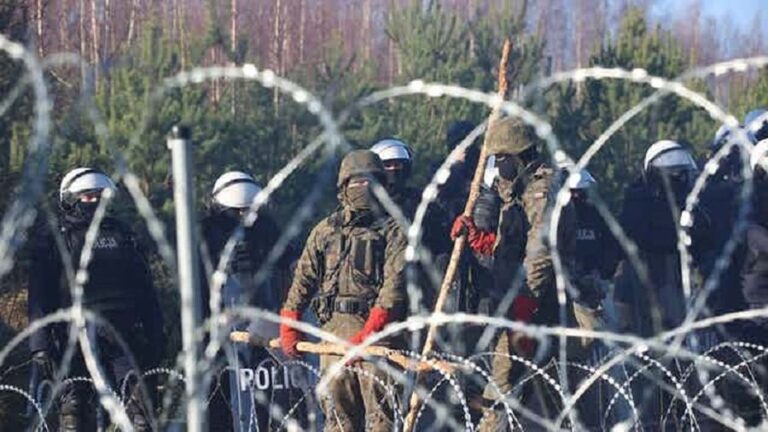Interpreting the Postponement of Multilateral Syrian-Centric Talks in Moscow Till in May
This announcement came just several days after senior diplomats from Iran, Russia, Syria, and Turkiye held talks in Moscow aimed at preparing for the planned meeting between their Foreign Ministers there, thus making observers wonder why it was just pushed back until an as-yet unscheduled date sometime next month.
TASS reported on Sunday that the Russian Ambassador to Syria told the Al Watan newspaper that planned talks between his country’s Foreign Minister, Iran’s, Syria’s, and Turkiye’s in Moscow have been postponed till sometime in early May. This announcement came just several days after all sides’ senior diplomats held talks in the Russian capital aimed at preparing for this planned meeting, thus making observers wonder why it was just pushed back until next month.
The larger regional context at this particular point in time was briefly described in this analysis here, which to summarize, concerns fast-moving diplomatic events that could facilitate a breakthrough in this war-torn country’s peace process if Israel’s recent spree of strikes there don’t end up offsetting this scenario. About those, they’re always carried out on the pretext of preventing Iran and its regional allies like Hezbollah from stockpiling arms that Tel Aviv claims are intended to one day be used against it.
The most recent spree of strikes, however, came at a politically convenient time for Prime Minister Netanyahu. They enabled him to relieve some of the pressure that he’s been under as a result of the US-backed Color Revolution against him, which the latest reports claim is also secretly backed by the Mossad. His office predictably denied that this is the case, though relations between the various branches of government are very tense right now, hence why this should be taken with a grain of salt.
On the subject of Israeli strikes, it should also be mentioned that the self-professed Jewish State recently bombed the Gaza Strip and Lebanon in response to cross-border rocket attacks that coincided with clashes at the Al Aqsa Mosque. It’s unclear whether all of this is due to Netanyahu provoking an international crisis to distract from his domestic one, Israel’s enemies seeking to exploit the aforesaid, or independent of the Color Revolution, but the takeaway is that Arab-Israeli ties are rapidly worsening.
The US’ ties with Arab countries also aren’t doing all that well either right now, with the CIA chief having reportedly complained during his latest trip to Saudi Arabia that he was blindsided by the Kingdom’s recent rapprochement with Iran and its reportedly planned one with Syria. Furthermore, Biden ordered airstrikes against alleged Iranian and allied militia targets in Syria following an attack on one of the US’ bases in Northeastern Syria. He also repositioned an aircraft carrier closer to the Syrian coastline too.
Israel and the US’ worsening relations with Arab countries, not to mention their increasingly complicated bilateral ones, aren’t favorable for regional stability. The first will continue striking Syria on the previously mentioned pretext that’s connected to Iran while the second will only do so in response to being attacked by the Islamic Republic and/or its allied militia. Iran’s continued military presence in Syria at Damascus’ invitation is therefore the common thread connecting these two destabilizing factors.
Its security dilemmas with Israel and the US, as well as its support for Resistance causes like Palestine’s vis-à-vis the first of those two and Syria’s with respect to liberating the one-third of its territory that’s still under the second’s occupation, explain why it’s unlikely to unilaterally withdraw from there. Without that happening, Israel’s pretext for striking Syria will remain in place, but there’s no guarantee that it’ll stop even if Iran leaves. Likewise, Iran’s withdrawal probably won’t be followed by the US’.
The Islamic Republic therefore has no reason to leave Syria since doing so wouldn’t advance its interests, nor those of its host. As long as it remains there, however, Israel will continue striking that country and the US couldn’t withdraw even if it wanted to since the optics of “abandoning Syria to Iran” are politically unacceptable for any American administration. The resultant security dilemma thus perpetuates the stalemate for resolving the over-decade-long Syrian Conflict.
Further complicating matters, Turkiye occupies a swath of Syria’s northern border and its northwestern region around Idlib, the first of which continues on the pretext of defending itself from US-backed Kurdish threats while the second is connected to supporting anti-government forces. Without the US leaving Syria, Turkiye is unlikely to leave the northern border region due to the continued Kurdish threat, while it’s loath to leave the northwest without an end to the civil dimension of the conflict.
President Erdogan is also up for re-election on 14 May so unilaterally leaving either part of Syria without those aforementioned conditions being met would be political suicide since his US-backed opponents would certainly spin it as a betrayal of Turkiye’s national security interests. That said, there’s a chance – however slim – that a diplomatic breakthrough for resolving the civil dimension of this conflict might be reached before then at the upcoming meeting, thus giving him a predictable boost at the polls.
Considering the complicated dynamics of the Syrian Conflict that were explained in this analysis, nobody should expect either Iran or the US to withdraw from there anytime soon, which thus means that more American and Israeli strikes are to be expected. The most optimistic scenario is that the civil dimension of this conflict is resolved during their Foreign Ministers’ meeting in Moscow next month, which could serve as the pretext for Turkiye to withdraw from the northwestern part of the country.
Even if that happens, however, it’ll probably still take time for it to fully leave and would require painful political compromises on Damascus’ part such as some sort of power-sharing arrangement and/or regional autonomy to the predominantly anti-government population there. It’s this aspect of the peace process that’s the most sensitive, but successfully agreeing on its details could open up the opportunity to bring some of the Kurdish opposition from Northeast Syria into the national fold.
As long as they’re not offered political autonomy, which Turkiye has already made clear is unacceptable to its security interests, then some comparatively lower-level form of power-sharing along the lines of whatever might be offered to anti-government forces in the northwest could be extended to them too. Depending on the details, that might be enough to get some of them to break ranks with the US by joining what would by then be the reinvigorated peace process.
In that event, which shouldn’t be taken for granted and might never ultimately materialize, the US could be forced by fast-moving political circumstances beyond its control into withdrawing from the one-third of Syria that it still occupies. That would then create the conditions for Iran and Turkiye to do so as well, thus resolving this imbroglio once and for all, but it requires a lot of compromises, trust, and coordination between those two’s Foreign Ministers, Russia’s, and Syria’s.
The first step in this larger process of politically resolving the civil dimension of the Syrian Conflict and thus facilitating Turkiye’s withdrawal from the northwestern part of the country hasn’t yet been achieved, thus explaining the postponement of their top diplomats’ talks in Moscow until next month. Between then and that as-yet unscheduled date, a lot could still happen regarding American and/or Israeli strikes against Iran and its militia allies in Syria, which could indefinitely delay their meeting.
In the best-case scenario, these attacks will abate and those four’s Foreign Ministers will meet in the Russian capital after finalizing the details of whatever agreement it is that they’re all working on, during which time they’ll announce a breakthrough in the stalled peace process. Some of the Kurdish opposition in the US’ occupation zone will then eventually join these reinvigorated talks, but all of this might still be far away from happening so observers should temper their expectations about everything.







